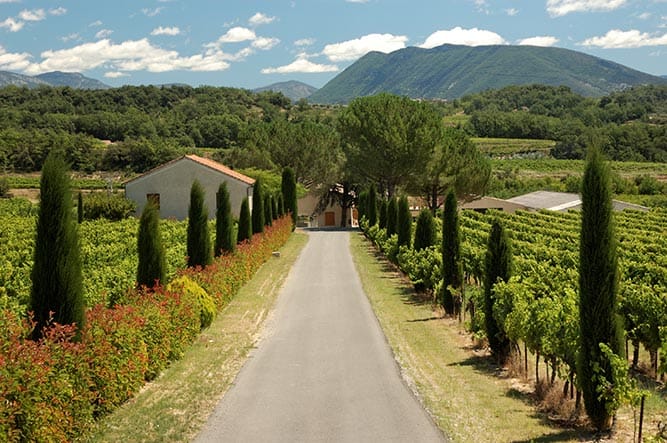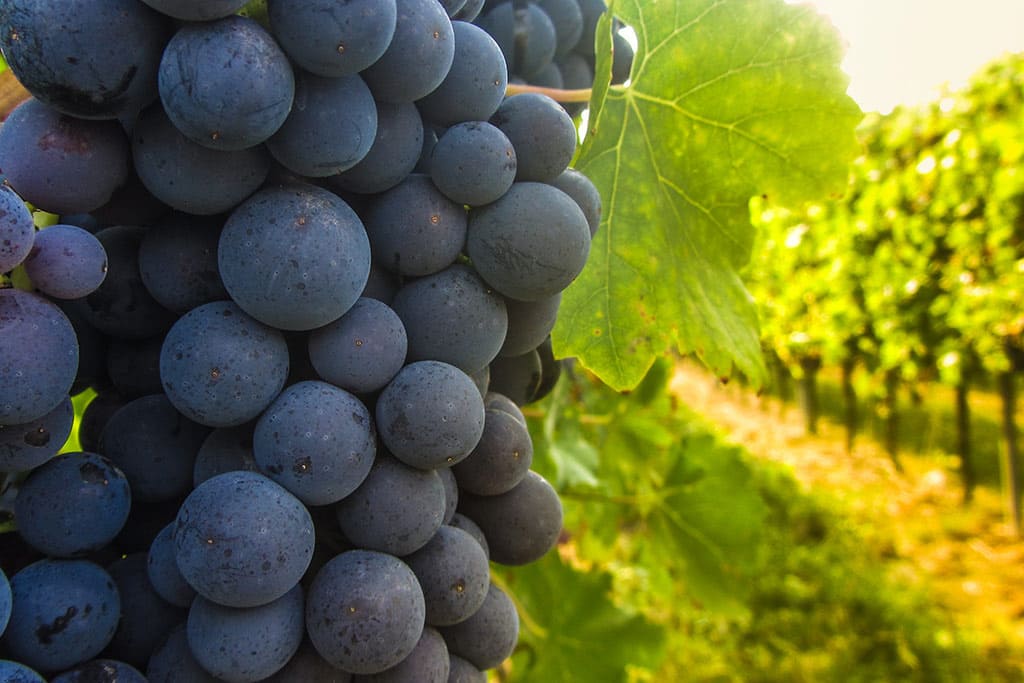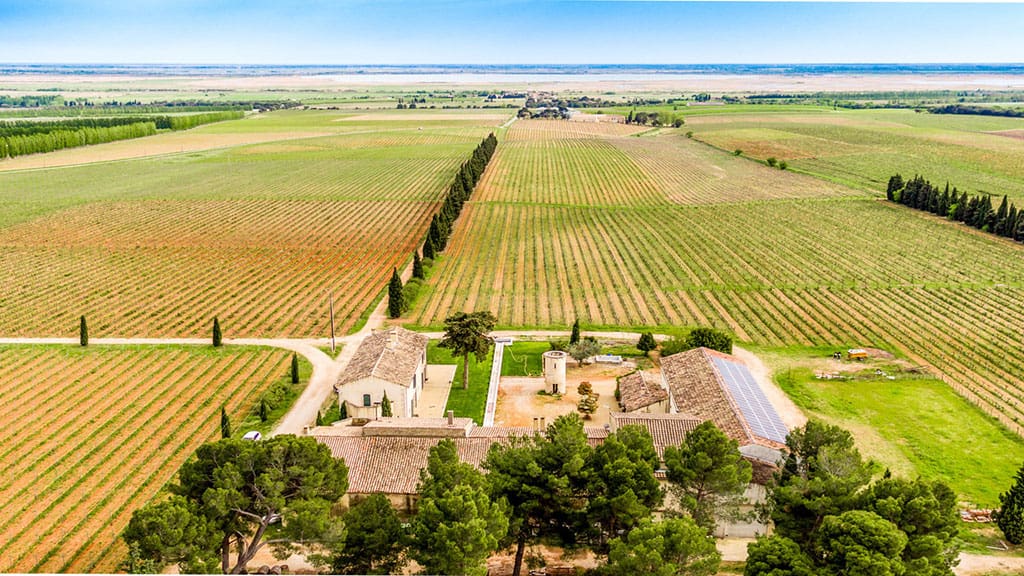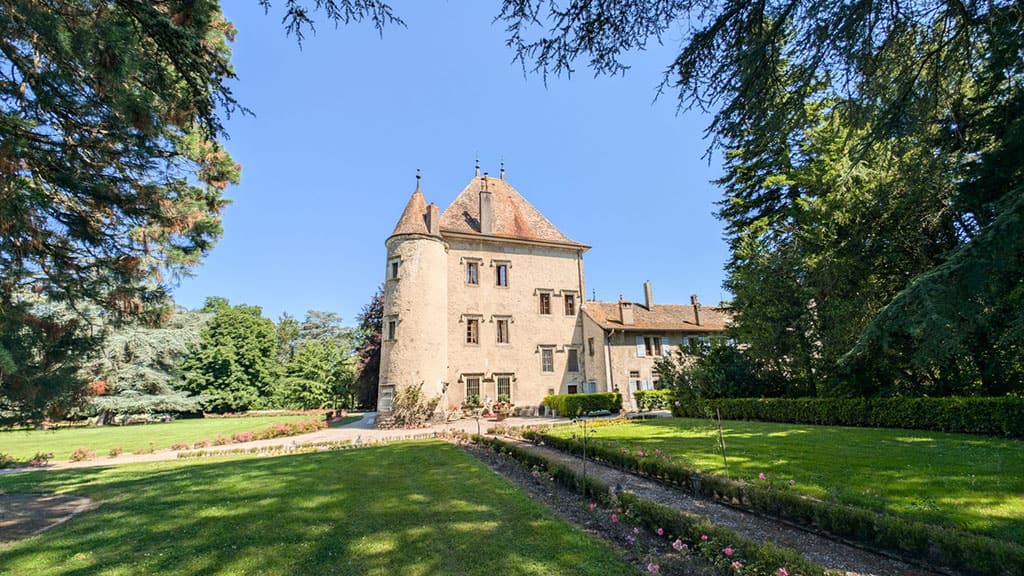Imagine taking a stroll through green vines exploding with colourful grapes. Behind the vineyard, the sunset washes everything with a warm glow. You sip a glass of wine that was made from your own land.
As a world-renowned wine producer, France attracts buyers and enthusiasts from all over the world. Moreover, there’s a growing interest amongst overseas buyers in French vineyard property, and it’s easy to see why. Not only can purchasing a vineyard be a savvy business venture, but it’s also an investment in a new and exciting lifestyle.
Table of Contents
What Are the Main Wine Regions in France Where You Can Buy a Vineyard?
There are a number of revered wine regions in France. Some are more popular than others, offering more opportunities for creating a thriving business. However, lesser-known wine regions have their appeal, too, including more privacy and the option to care for hobby vines at your leisure.
Bordeaux
Bordeaux is famous for its grand estates and for producing prestigious wines. Property buyers who want to purchase an established vineyard that’s already received global recognition should look in Bordeaux.
Burgundy
This region of France is known for having small, high-value vineyards, namely producing Chardonnay and Pinot Noir. Burgundy is an ideal location for vineyard buyers who are seeking exclusivity.
Champagne
This is the only region that produces true Champagne, and it’s a prime location to buy a vineyard that has iconic and highly recognisable branding potential.
Languedoc-Roussillon
This coastal region of France is part of Occitanie and borders Spain. As an emerging wine region, it’s best for buyers looking for affordable properties with growth potential. The area is also known for having large estates, which are ideal for privacy.
Loire Valley
Buyers in the market for heritage properties with operating vineyards should search for a home in the Loire Valley. Known for its historic estates, the area is also a producer of mainly white wines.
Provence
This French province is known for its Mediterranean lifestyle and rosé wines. Provence mainly attracts buyers who are looking for a luxury lifestyle as much as they’re looking for an investment property.
What Types of Vineyards Can You Buy in France?
There are different types of vineyard properties you can buy in France. Whether you want to build your own business or take over one that’s already thriving, there are plenty of options.
Boutique Vineyards
Small, boutique vineyards produce high-quality niche wines. This type of property is sought after by investors who care mainly about the lifestyle rather than the quantity of wines produced.
Established Vineyards
By buying a vineyard with an existing reputation, you’ll be able to take advantage of in-place distribution networks and production facilities. You also may acquire a customer list of regular buyers and visitors, which can give you a marketing and sales boost from the start.
Development Opportunities
You may be able to find a vineyard property on the market that has the potential for expansion or modern renovations. This is a great choice for buyers who want to grow a wine business over time.
Mixed Estates
Instead of having to buy a new home near your vineyard property, you can look for a mixed estate that has everything you need in one place. Many vineyards in France include luxury residences on the property, offering the most convenient way to combine the French lifestyle with a new business venture.
Also, many people purchase a vineyard with the thought of turning it into a B&B or a gite business. If this is your plan, you’ll want an estate that has outbuildings that can be converted into accommodation.
How Much Does It Cost To Buy a Vineyard in France?
The cost of a vineyard property in France varies by region, among several other factors, such as:
- Appellation status
- Estate’s reputation
- Existing infrastructure
- Soil quality
- Vineyard size
Many of our listed vineyard properties range from €3,500 to €6,500 per square metre. However, a 17-bedroom castle estate with a vineyard may cost upwards of €8,000 per square metre, while a petite vineyard farmhouse may be considerably lower in cost at approximately €3,100 per square metre.
Additional costs to consider when buying a vineyard in France include renovations and production facility upgrades; the cost of labour; and legal fees and taxes.
It’s also important to consider investment potential, which may offset some of those expenses over time. For example, buying a vineyard property in a popular wine-making region like Bordeaux or Burgundy means you can own an established, popular estate. While you’ll pay premium prices upfront, you may see strong long-term returns.
Note that vineyards hold their value rather well. Even if winemaking isn’t profitable, property and land value will generally increase.
What Are the Legal Considerations for Buying a Vineyard in France?
As a foreign buyer, you won’t face many restrictions when purchasing property in France. However, you may have to provide additional paperwork, particularly when it comes to showing proof of your finances.
Banking and exchange fees will also be a consideration, along with securing the right type of French residency permit for your needs.
Additionally, you’ll want to fully understand French inheritance laws and tax obligations as they relate to agricultural properties owned by foreign buyers.
Here are a few legal considerations that will provide a jumping-off point for further research.
Notaire
In France, a notaire is a public official who is involved in the sale or purchase of French property. This government-appointed lawyer has a crucial role when it comes to real estate transactions in France. Whenever a property is purchased, sold, inherited, donated, etc., the notaire is responsible for drafting legal agreements, levying taxes, delivering property deeds, and more.
Appellation d’Origine Contrôlée
Created in the early 20th century, France’s appellation system is a complex set of laws that define every wine region and its boundaries. Strict rules are imposed on the winemaking practice in order to protect the name of French wines. This guarantees the quality of the products and helps consumers trust wine from French vineyards.
The AOC is a labeling system in France that defines standards for cheese, meat and wine. This certification of authenticity is granted by the INAO, and its purpose is to protect regional products that have features of a specific geographical area. By having an AOC label on your wine, you showcase that you’ve met rigorous, well-defined standards for geo-based producers.
Environmental and Land-Use Regulations
It’s important to understand zoning laws, land-use permits and other environmental obligations when purchasing vineyard property. This is especially crucial if the vineyard is not yet established or if you plan on expanding or renovating the property.
5 Considerations When Buying a Commercial Vineyard
Hard work has its perks, and for people looking to stay busy, there will be plenty to do when you’re in charge of a vineyard. From tending to and protecting the vines to dealing with marketing, staying ahead of competitors and abiding by local laws, there’s no lack of work to be done.
If your main goal is to earn an income from your vineyard property, keep these considerations in mind.
- An optimal vineyard size is 20 hectares, which should produce approximately 130,000 bottles annually. To maintain the vines without putting in the physical labour, some owners hire staff.
- It’s best to purchase an established vineyard that’s up-to-date and has mature vines. Otherwise, you need to be prepared for three years of losses before producing a decent volume.
- Always consider the natural elements that can’t be changed, like soil, subsoil, exposure and microclimate. These factors will affect what you’re able to grow in your vineyard.
- Vines need dedicated care daily, and each location and variety of wine will have its own needs. Ideally, you should have one employee for every 15 hectares.
- It’s recommended that new owners hire a wine specialist called an oenologist. They’ll be able to advise you on methods, soil and grapes.
Running a vineyard comes with risks, but if you have the right outlook, preparation and dedication, it can be an extremely rewarding lifestyle.
Final Thoughts About Buying a French Vineyard
Europe is the leader in the wine industry, and France is Europe’s wine frontrunner. A large variety of grapes are cultivated in France, including unusual varietals and internationally well-known ones. Buying a French vineyard can offer both a unique lifestyle and a thriving business.
It’s best to work with a property buyer’s agent when searching for French vineyards for sale. Not all vineyard properties are listed in the open market, and a property specialist will be able to unearth hidden gems. Your property agent will also be able to suggest locations and property types to suit your budget and business goals.
HOMEHUNTS property agents are able to select a range of beautiful vineyard properties based on your specific search criteria. Search our site and browse our selection of luxury homes and estates. You can also speak directly to one of our property consultants by calling +33 (0)970 44 66 43.






